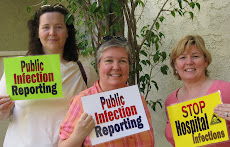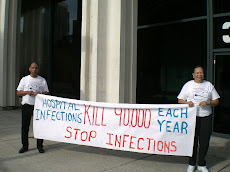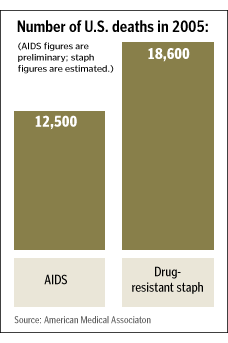July 2, 2009 - 6:28 PM
JOHN C. ENSSLIN AND BRIAN NEWSOME
THE GAZETTE
Federal officials Thursday warned that about 5,700 surgery patients, including 1,000 at a Colorado Springs surgery center, are at risk of having been infected by an operating room technician with hepatitis C.
Colorado Springs surgery center, are at risk of having been infected by an operating room technician with hepatitis C.
 Colorado Springs surgery center, are at risk of having been infected by an operating room technician with hepatitis C.
Colorado Springs surgery center, are at risk of having been infected by an operating room technician with hepatitis C.On Thursday, federal authorities filed criminal charges in U.S. District Court in Denver against Kristen Diane Parker, a former scrub technician at Rose Medical Center in Denver and Audubon Ambulatory Surgery Center in Colorado Springs.
According to the criminal complaint, Parker - a former heroin addict - admitted swapping her own dirty syringes filled with saline solution for syringes filled with Fentanyl, a narcotic 80 to 100 times stronger than morphine.
The drug is supposed to be used to help major post-surgery patients manage pain. Instead, they got no relief while Parker injected herself with the painkiller at home and in the hospital bathrooms before and after a surgery, according to the seven-page complaint.
"I know I (expletive deleted) up," Parker told Denver Police Detective Dale Wallis after he confronted her during a videotaped interview on June 30. "I can't take back what I did, but I will have to live with it for the rest of my life, and so does everybody else."
She told Wallis she expects to spend the rest of her life in prison. She told the detective that she had used heroin from July 2008 to September 2008 while living in New Jersey. She said she had used dirty needles and "was 99.9 percent sure" that is how she was exposed to hepatitis C.
A MySpace page for a woman with the name Kristen Parker describes her as a 26-year-old Colorado Springs resident with interests in heavy metal rock, tattoos and needles.
"I have a crazy fascination with needles.. I just like the way they feel!" the Web page states.
According to an affidavit by Mary F. LaFrance, an investigator for the U.S. Food and Drug Administration, at least nine surgery patients at Rose have tested positive for the incurable disease.
As a result, authorities are advising 4,700 Rose patients and 1,000 Audubon patients that they may have been exposed and need to be tested.
Parker worked at Rose from October 21, 2008 until April 2009. She resigned on April 20 from Rose, but the hospital refused to accept her resignation and instead fired her.
She went to work for Audubon shortly after being fired from Rose. She worked there from May 4 until Monday, said Dr. J. Michael Hall, Audubon's medical director.
Hall said certified letters are being sent to all patients who had outpatient surgery at the center's Circle Drive and Union Boulevard location May 4-July 1 advising them they may have been exposed and with instructions on what to do. Patients at Audubon's two other locations, one near St. Francis Medical Center and a pain management center, are unaffected.
In the criminal complaint she is charged with tampering with a consumer product, creating a counterfeit controlled substance and obtaining a controlled substance "by deceit and subterfuge."
If convicted, she faces up to 10 years in prison and a maximum $250,000 on the most serious charge of tampering. She also faces state charges.
Parker is not a nurse and holds no medical degree although she is trained as a surgical technician. Her job involved preparing operating rooms prior to surgery.
Prior to being hired at Rose, she submitted to a pre-employment blood test which tested positive for hepatitis C. She was allowed to start work but hospital officials counseled her about the disease and exposure possibilities.
Rose placed her on administrative leave following an incident in which a co-worker was pricked by a needle in Parker's pocket on March 23, 2009.
According to the affidavit, Parker quickly disposed of the needle and denied any use of narcotics. She was allowed to return to work after a drug screening test came back negative.
The hospital placed her on administrative leave again after a co-worker reported seeing Parker in an operating room to which she was not assigned. She was tested again for drugs and this time the results were positive for Fentalyn.
The hospital had a press conference Thursday and released a prepared statement that apologized to patients who have been affected.
"It is impossible to adequately express how deeply sorry and angry we are that the unconscionable acts of this terminated employee may have put some of our patients at risk," the statement reads.
The hospital will offer free testing to surgery patients of the hospital or the outpatient surgery center. Also, hospital officials have created a phone line for affected patients and their families who have questions.
After an investigation by the Colorado Department of Health, Parker was ordered by the state to "immediately cease and desist any employment that requires contact with patients and/or pharmaceuticals."
Hall said his center learned of the situation Thursday from the Colorado Department of Public Health and Environment. State and local health authorities, as well as Atlanta physicians with the federal Centers for Disease Control and Prevention, are assisting in tracking the exposures.
Hepatitis C facts
Hepatitis C facts
According to the Centers for Disease Control Web site, about 15 to 25 percent of people infected with hepatitis C clear the virus and do not develop chronic infection for reasons that are not well known.
Those who do develop acute hepatitis C develop symptoms such as fever, fatigue, dark urine, abdominal pain, loss of appetite, clay colored stool, nausea, vomiting, joint pain and jaundice.
For every 100 people who contract the disease, 75 to 85 will develop a chronic infection. About 60 to 70 will develop chronic liver disease. About 5 to 20 will develop cirrhosis over a period of 20 to 30 years. Between 1 and 5 will die of liver cancer or cirrhosis.
Chronic hepatitis C infections account for about 8,000 to 10,000 deaths each year in the United States.
No vaccine for hepatitis C is available.









No comments:
Post a Comment